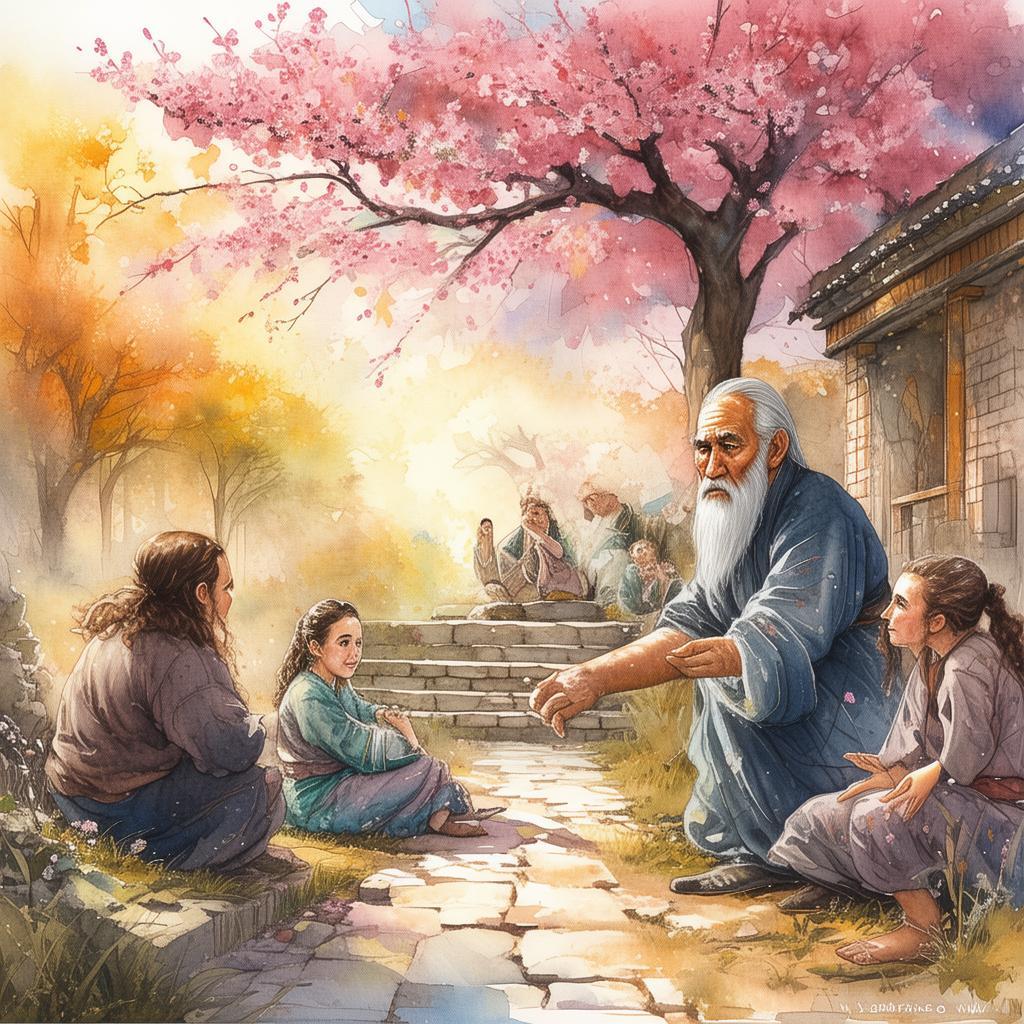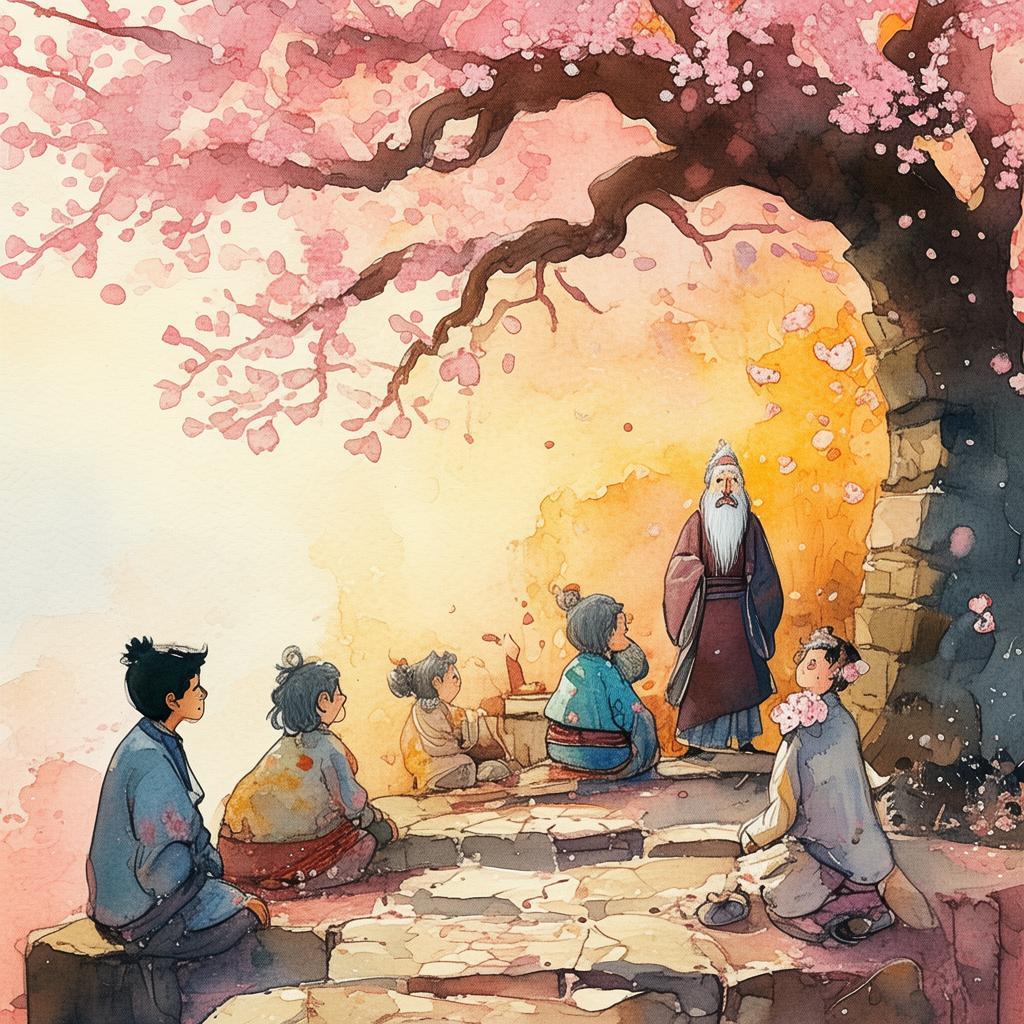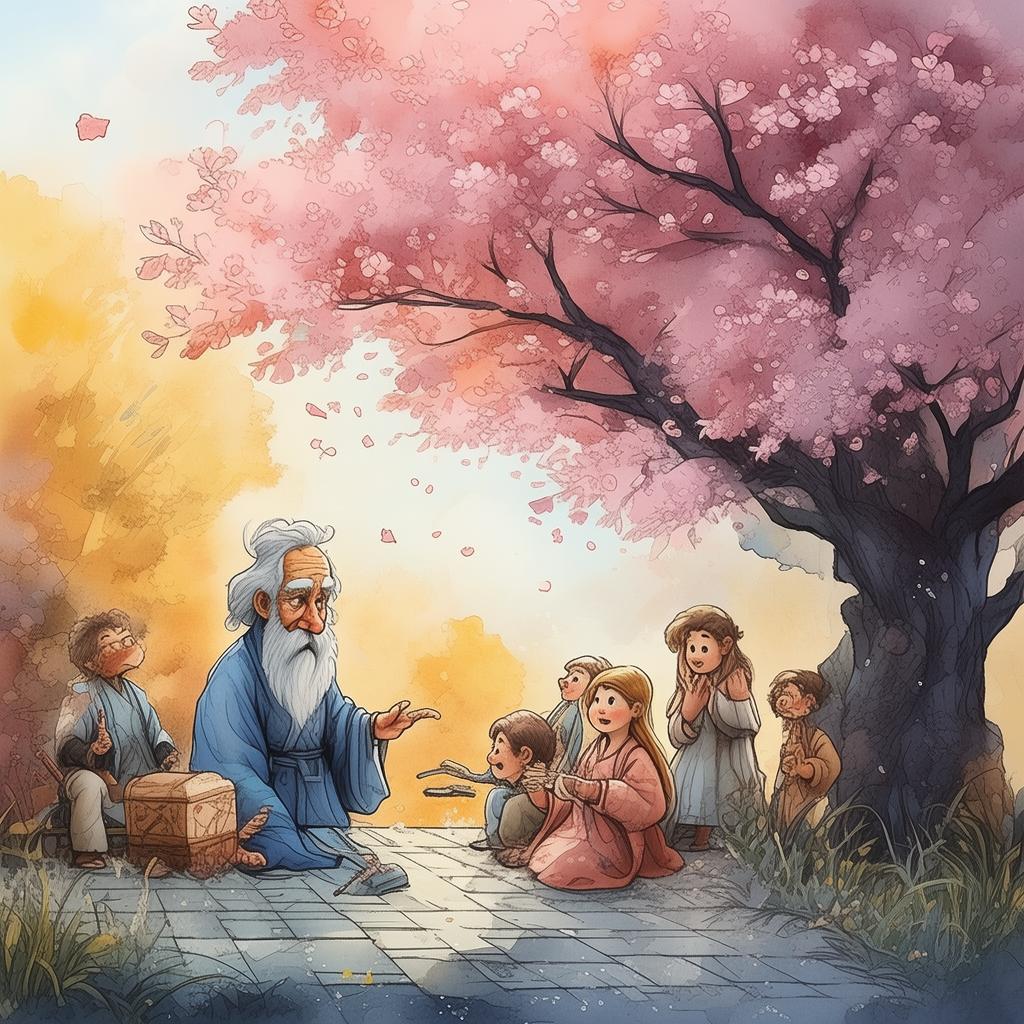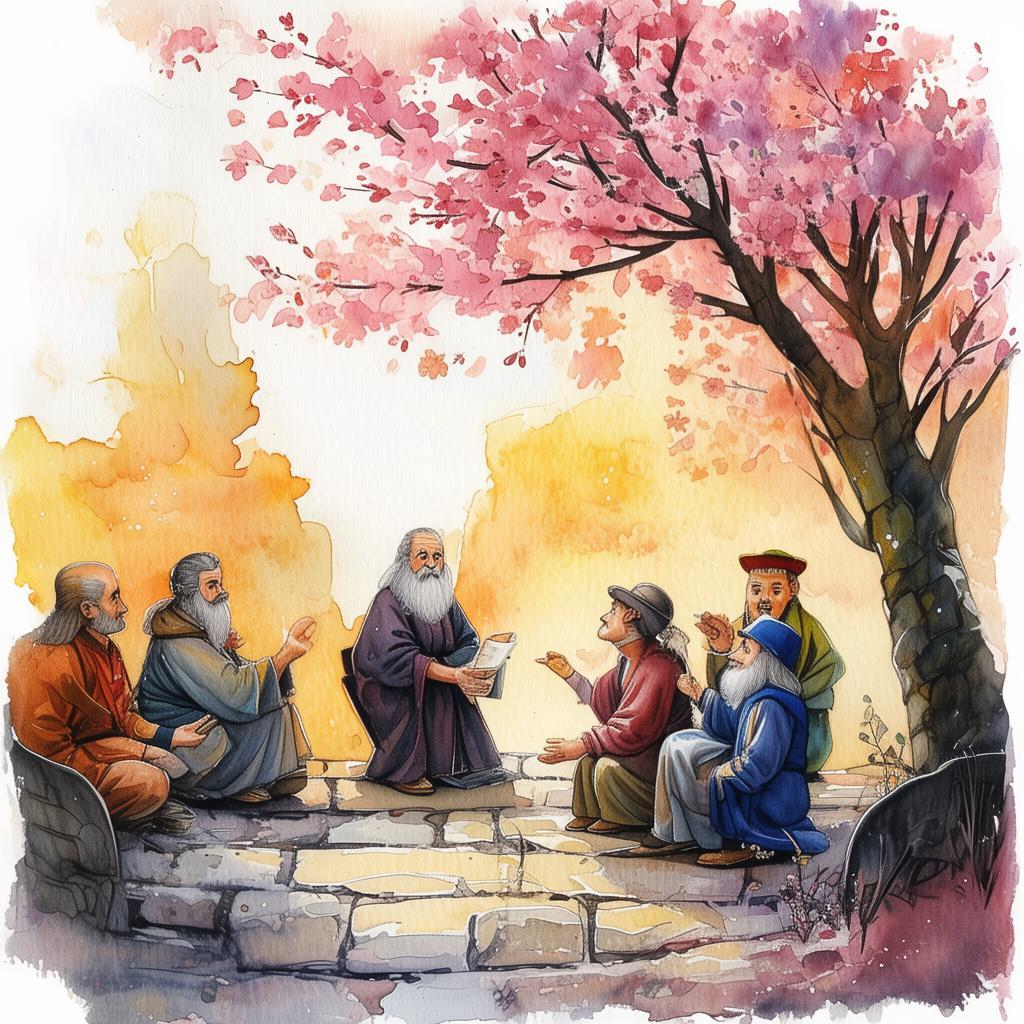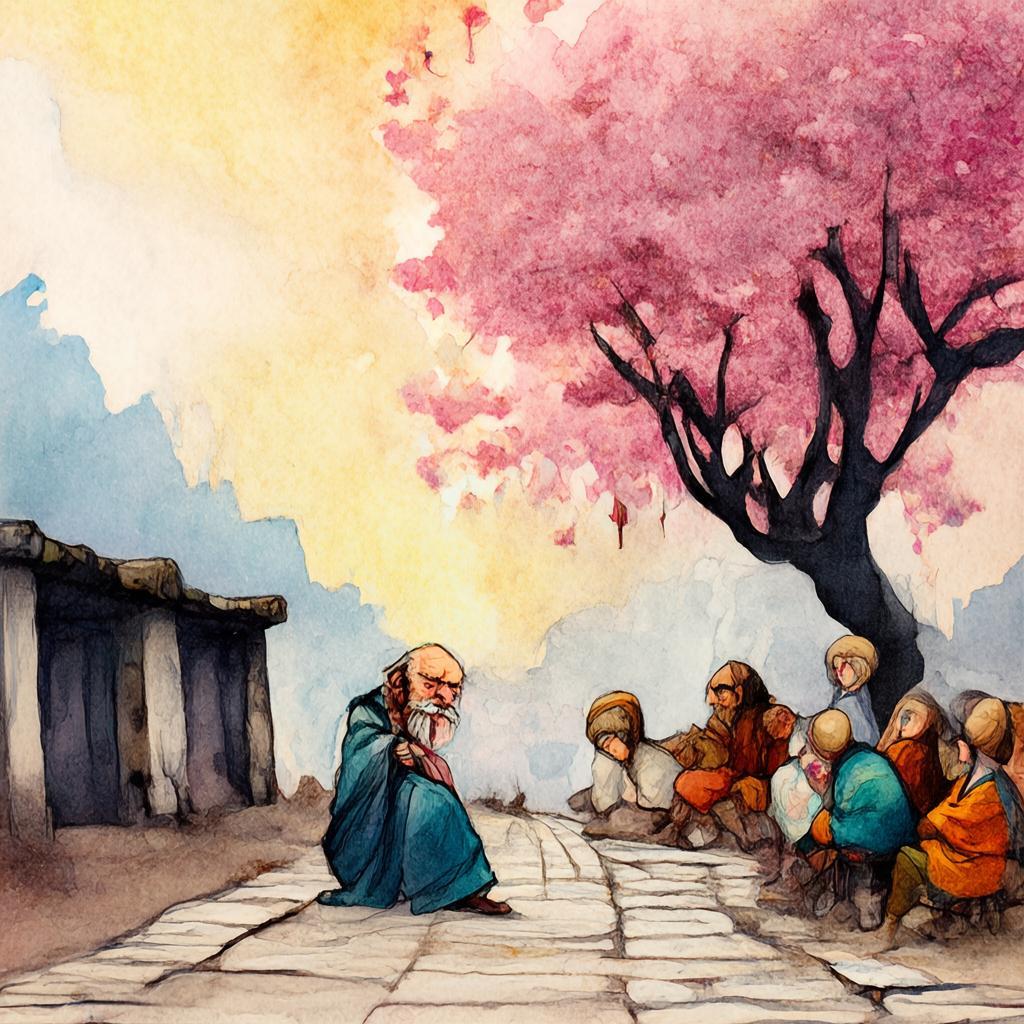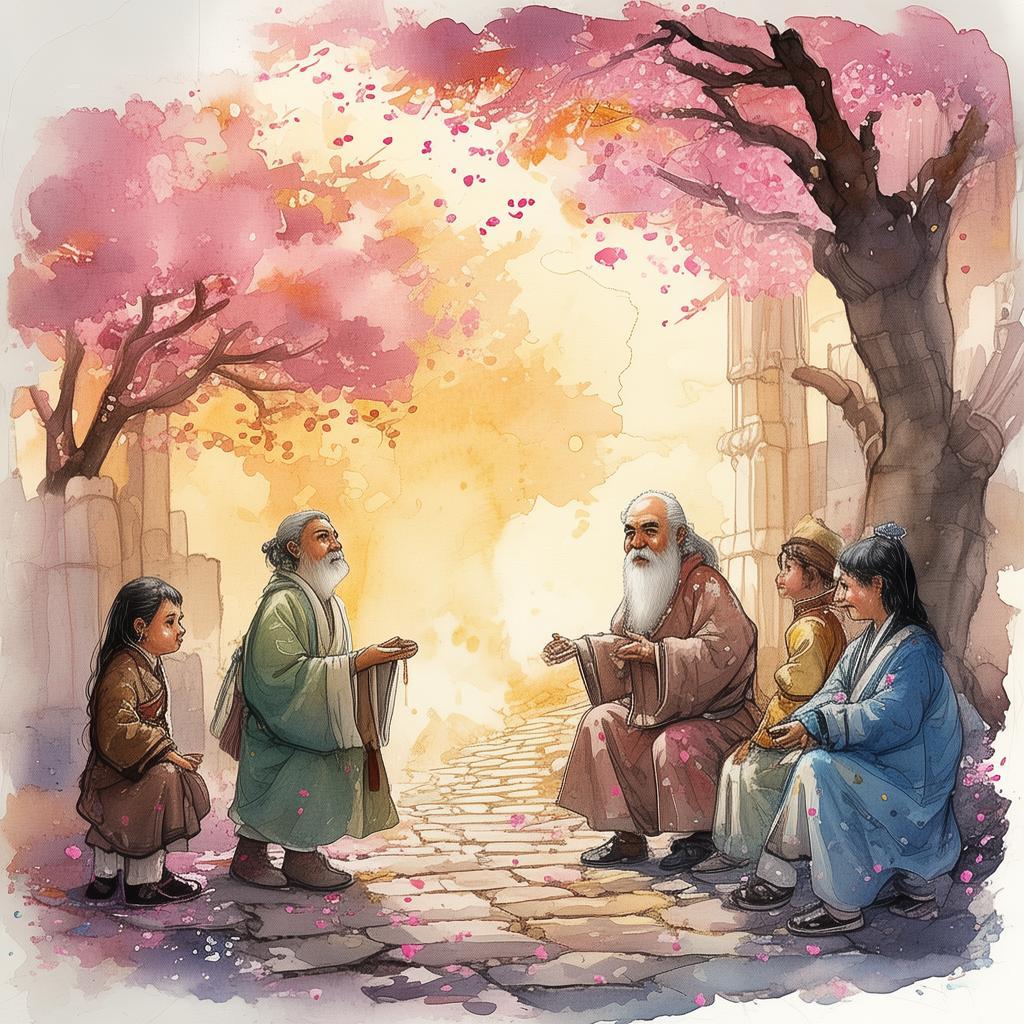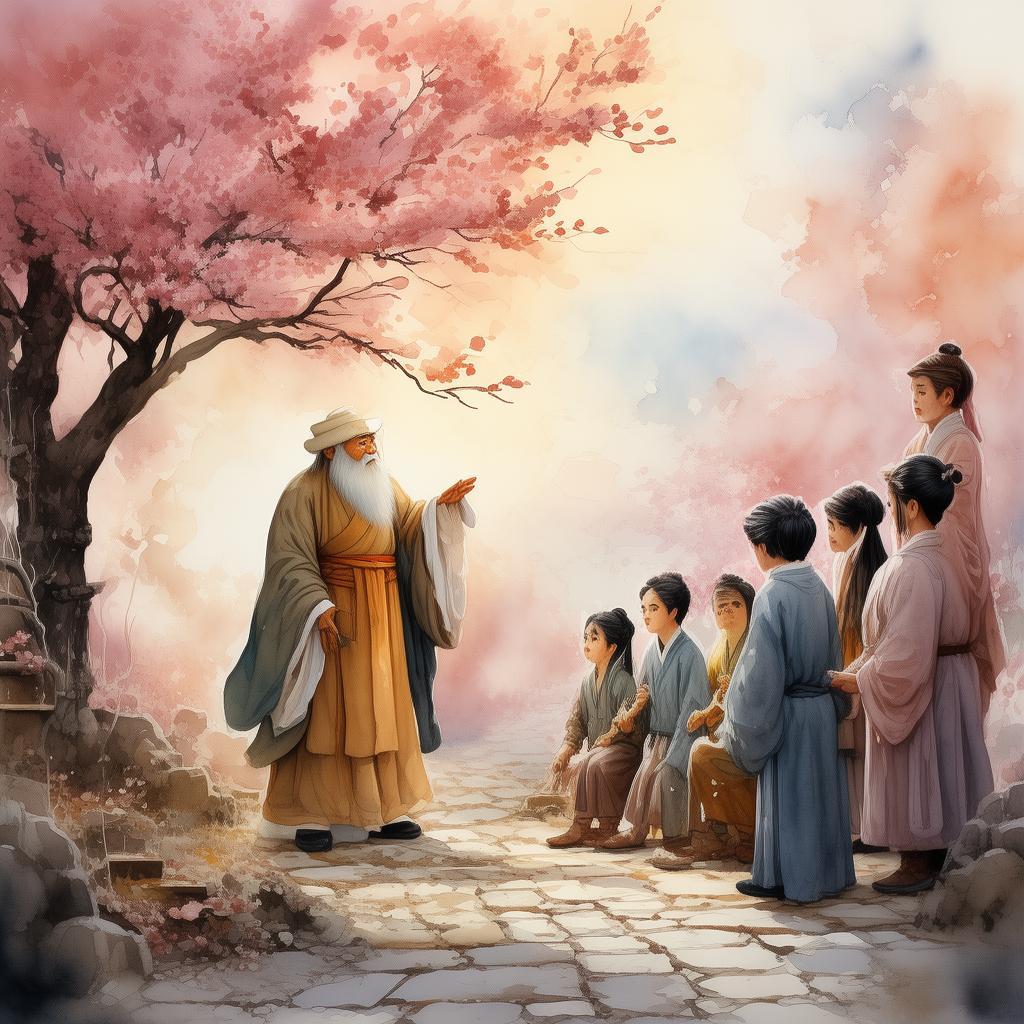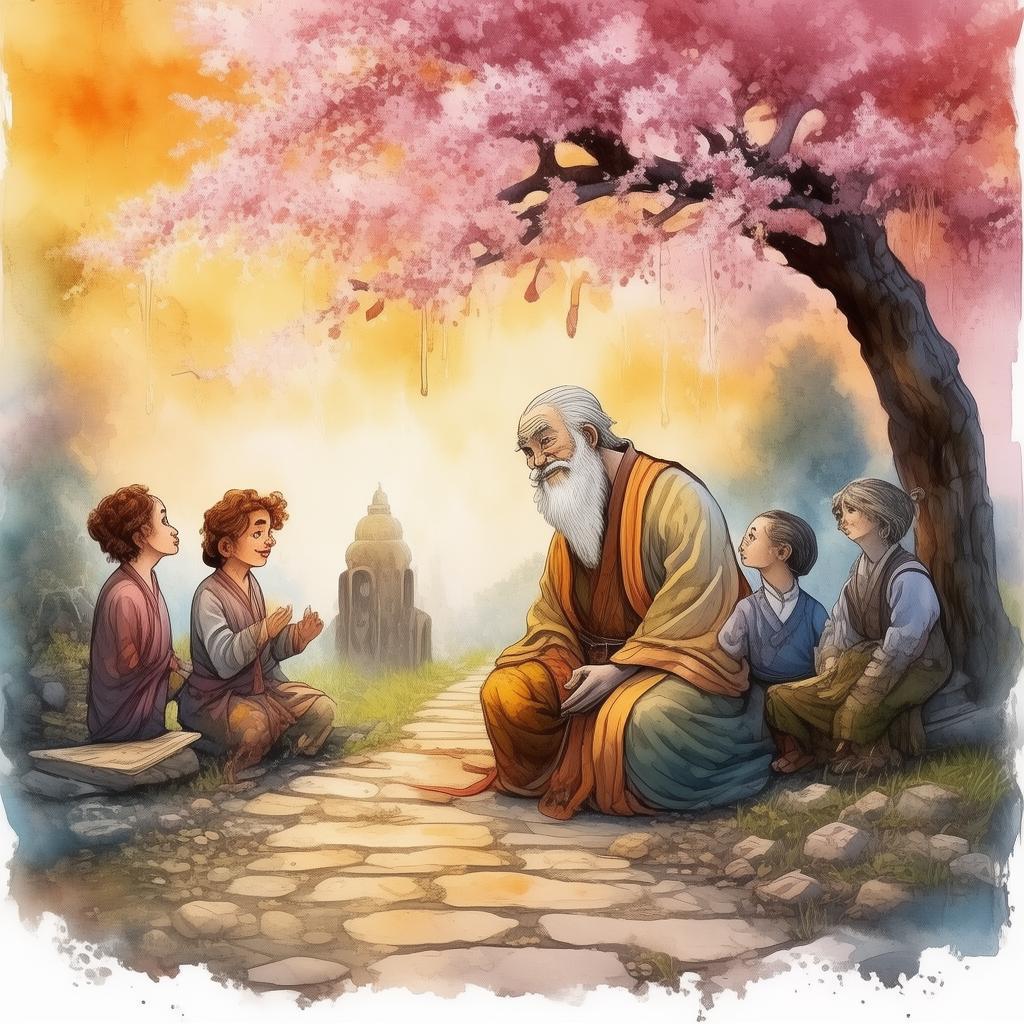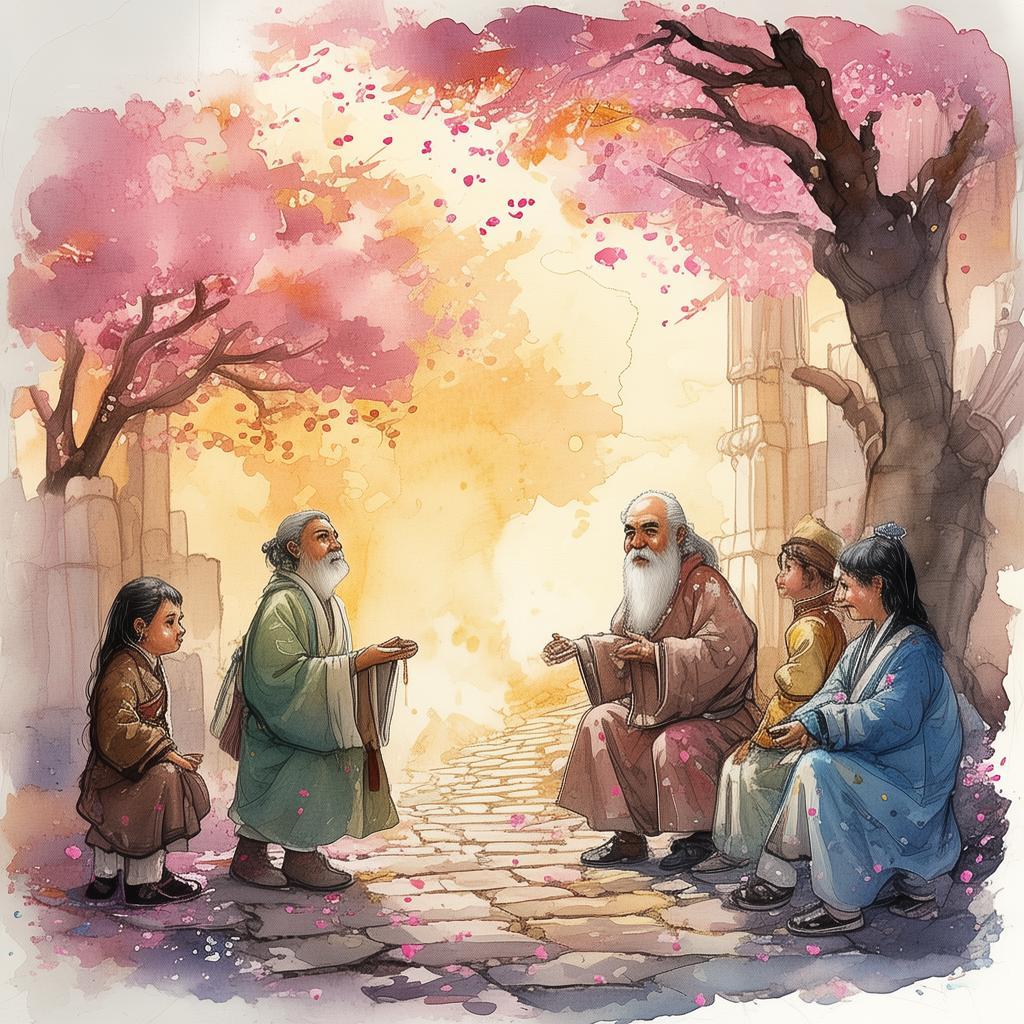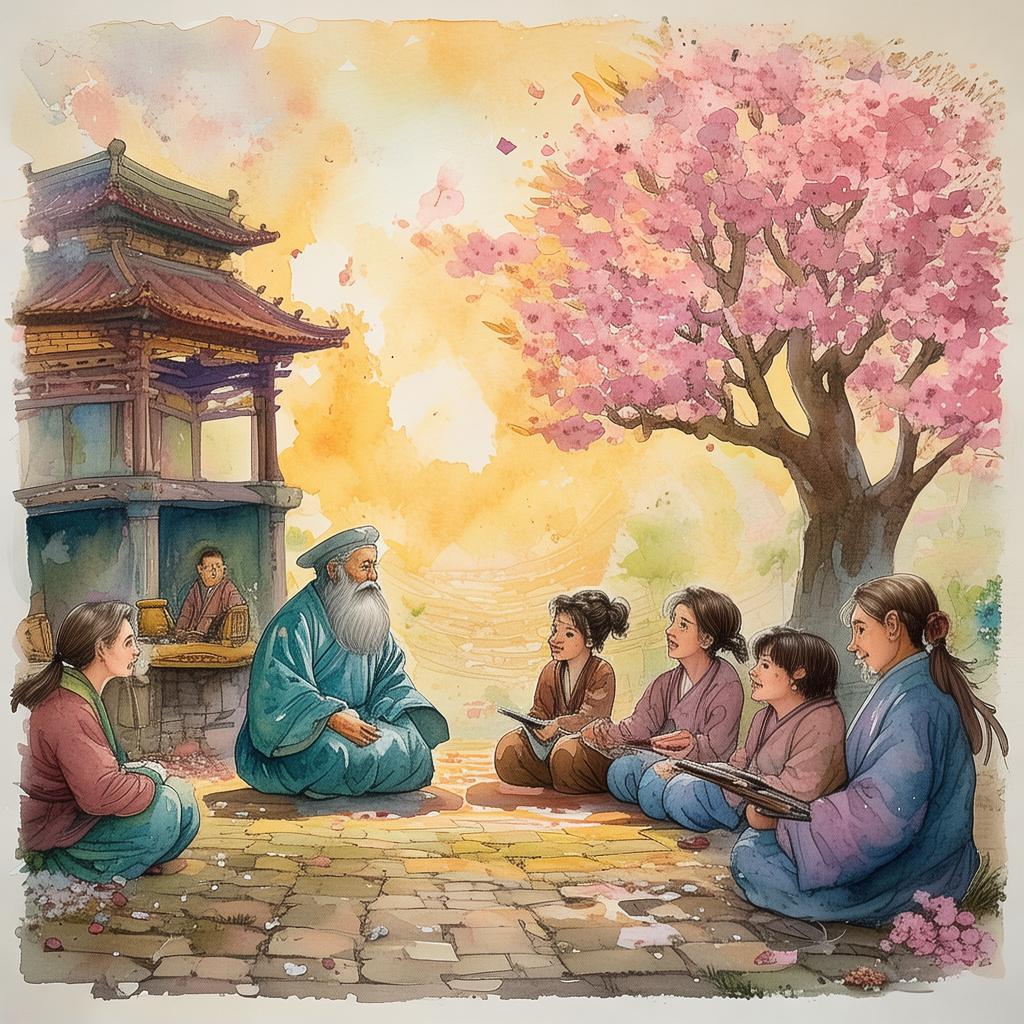Resurrection of the Forbidden Garden
In the heart of an ancient, desolate city lay the Forbidden Garden, a place long abandoned and forgotten by time. Its once vibrant blooms now lay in ruins, the scent of flowers replaced by the stench of decay. It was said that no one had seen a living soul within its walls for decades, and whispers of curses and spirits haunted the area.
Amidst the ruins of the Forbidden Garden, there lived an old gardener named Lao Wu. He was a man of few words, his life dedicated to the care of the plants that had once thrived there. His hands, calloused from years of toil, were the only sign of life in the desolate garden. Lao Wu was the last person who knew the garden's secrets, and he had sworn to keep them hidden from the world.
One fateful night, as the moon hung low in the sky, Lao Wu was tending to the garden when he noticed a faint glow emanating from the depths of the overgrown maze. Intrigued, he ventured deeper, his footsteps muffled by the thick carpet of fallen leaves. As he reached the center of the maze, he found an ancient, ornate box half-buried in the earth.
With trembling hands, Lao Wu unearthed the box, and inside he found a scroll, inscribed with ancient characters and symbols. The scroll spoke of a forbidden ritual, one that could bring back the dead. The ritual required a pure heart and a willingness to sacrifice for the greater good. Lao Wu's heart raced as he realized the potential power of the ritual. Could it be that the garden's revival was a sign?
Days turned into weeks as Lao Wu pondered the scroll's words. He knew the risks were great, but the garden's suffering weighed heavily on his soul. One evening, as the last rays of sunlight filtered through the branches of the dying trees, Lao Wu made his decision. He would perform the ritual, no matter the consequences.
The night of the ritual was one of chaos and confusion. Lao Wu, clad in white robes, stood in the center of the maze, his face etched with determination. He chanted ancient incantations, his voice echoing through the garden. The air grew thick with the scent of flowers, and the once-dead trees began to stir.
As the ritual reached its climax, the ground beneath Lao Wu's feet trembled. The air crackled with energy, and the once-overgrown maze seemed to clear itself, revealing the path to the heart of the garden. In that moment, Lao Wu knew the ritual had worked.
With a sense of dread, he followed the path to the heart of the garden, where he found a figure shrouded in darkness. It was the spirit of the garden itself, a manifestation of its long-buried secrets. The spirit spoke to Lao Wu, revealing the true nature of the Forbidden Garden. It was a sanctuary for souls who had been forsaken by the living, a place where they could find solace and peace.
As the spirit's words filled Lao Wu's mind, he realized that the garden's revival was not a sign of good fortune, but a warning. The dead were returning, seeking closure and redemption, and Lao Wu knew that he had to face the consequences of his actions.
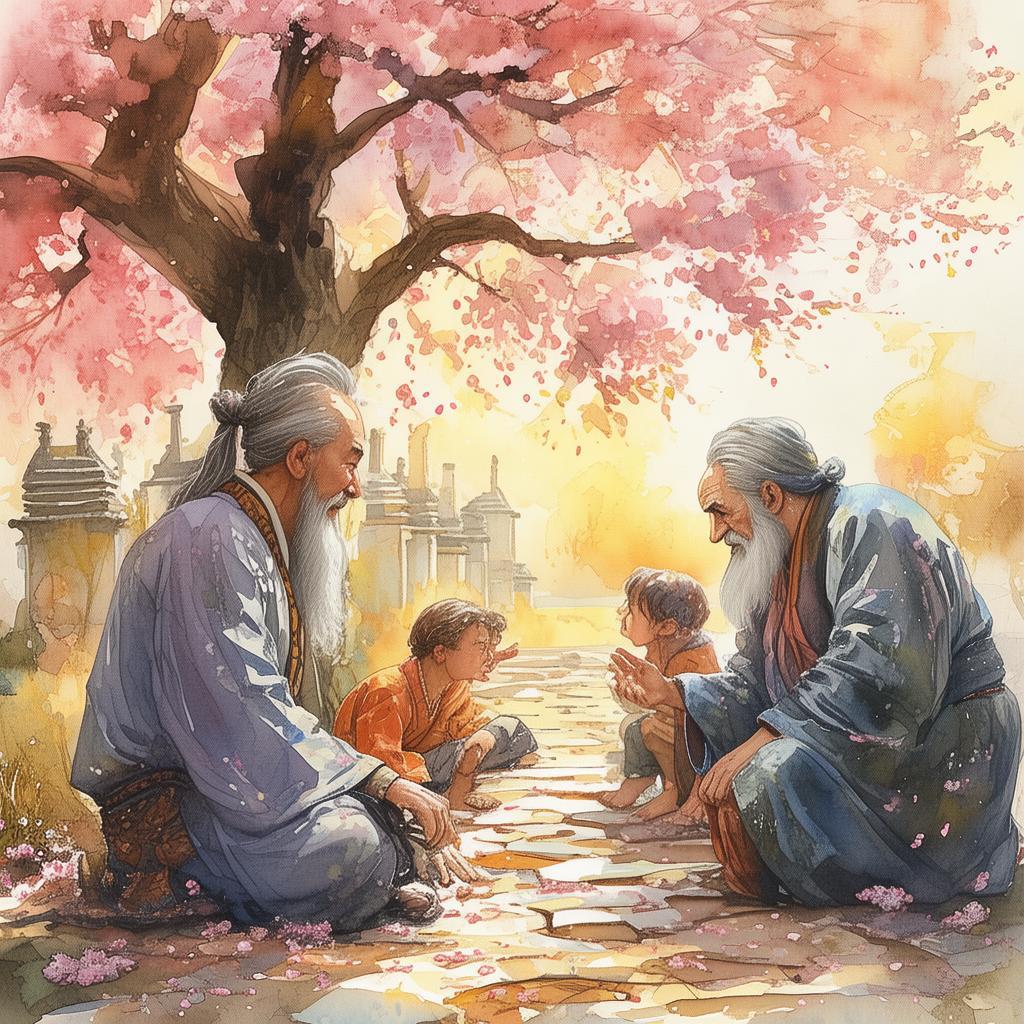
One by one, the spirits began to appear, drawn to the garden by the ritual's power. They sought Lao Wu, their eyes filled with pain and longing. Lao Wu was forced to confront the past, the lives he had failed to save, and the mistakes he had made. Each spirit's story was a testament to the suffering that had been hidden within the garden's walls.
As the last spirit departed, leaving a trail of sorrow behind, Lao Wu found himself standing alone in the heart of the garden. He looked around, seeing the reborn beauty of the garden, but felt no joy. The garden's revival had brought peace to the dead, but at a great cost to the living.
Lao Wu knew that he could not escape his guilt, but he also understood that the garden's revival was a gift. It was a chance to make amends for the past, to right the wrongs that had been done. With a heavy heart, Lao Wu vowed to honor the memory of those who had once called the Forbidden Garden home.
The story of the Forbidden Garden's Resurrection spread far and wide, a tale of love, loss, and redemption. It was a reminder that the past could not be forgotten, and that the consequences of one's actions could resonate for generations. The garden, once a place of sorrow, had become a symbol of hope, a place where the living and the dead could find solace and peace.
✨ Original Statement ✨
All articles published on this website (including but not limited to text, images, videos, and other content) are original or authorized for reposting and are protected by relevant laws. Without the explicit written permission of this website, no individual or organization may copy, modify, repost, or use the content for commercial purposes.
If you need to quote or cooperate, please contact this site for authorization. We reserve the right to pursue legal responsibility for any unauthorized use.
Hereby declared.
